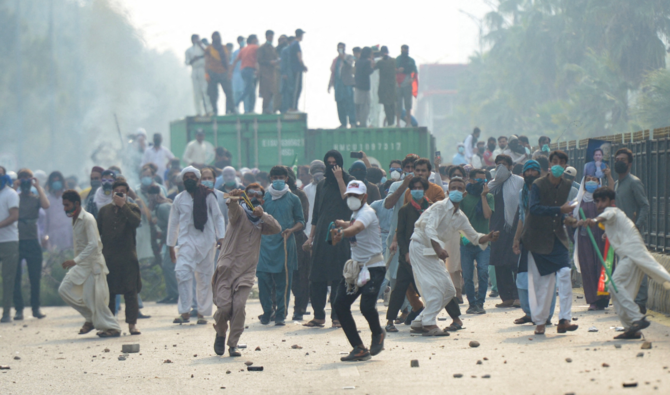ISLAMABAD: A Pakistani court issued a brief order in response to a petition on Saturday, saying no “unlawful protest” could be held in Islamabad during the Shanghai Cooperation Organization (SCO) summit.
Pakistan will host the SCO conference in the federal capital on October 15 and 16, with several high-profile foreign dignitaries expected to participate from various regional countries. The government has already deployed the army in Islamabad, whose top officials will oversee the city’s security until October 17.
The Islamabad Capital Territory (ICT) administration has also imposed Section 144 of the Criminal Procedure Code to prevent large gatherings, though former prime minister Imran Khan’s Pakistan Tehreek-e-Insaf (PTI) party has ignored the legal provision while attempting to hold a protest near the parliament building.
“The respondents shall ensure that no unlawful protest is held in ICT that creates situation of lockdown or disrupt peace in ICT during the period of SCO Summit,” Islamabad High Court Chief Justice Aamir Farooq said in his written order.
The petition was filed by local businessmen who said life had come to a standstill in the federal capital, with the PTI trying to protest in the city and the government using shipping containers to block the roads in a bid to prevent the demonstration from taking place.
The court also observed in its order that people could not even access the airport or medical facilities under the circumstances.
Justice Farooq noted the Section 144 had already been imposed in the city, though he asked the Islamabad administration to allocated a place where the PTI could hold its protest.
The PTI has tried to hold the protest for the release of its founding leader, Imran Khan, at the D-Chowk in Islamabad which is located right next to some of the most sensitive government installations in the city.
The ruling administration has also accused the party of resorting to violence against police, adding that its supporters want to sabotage the SCO summit.
















